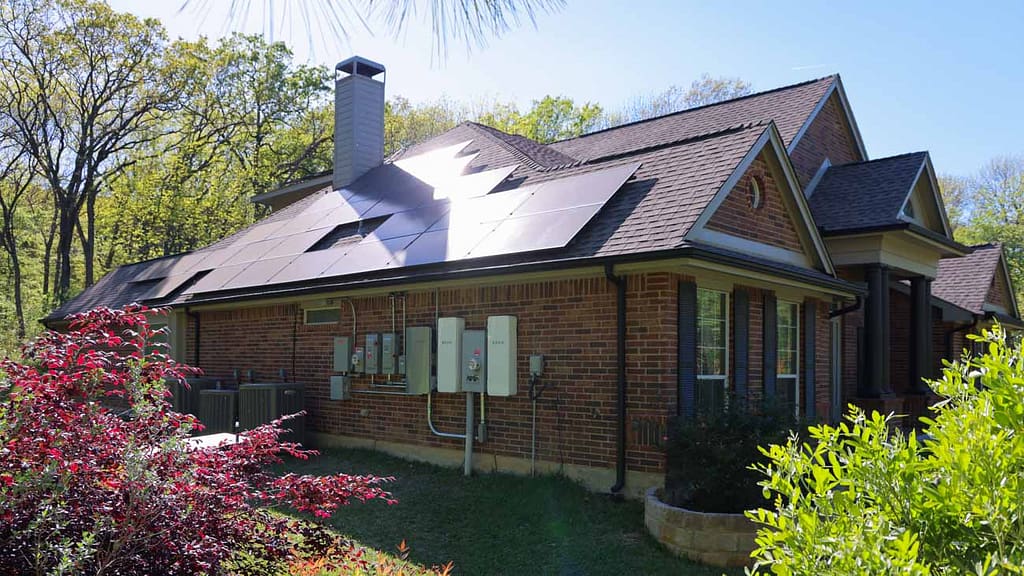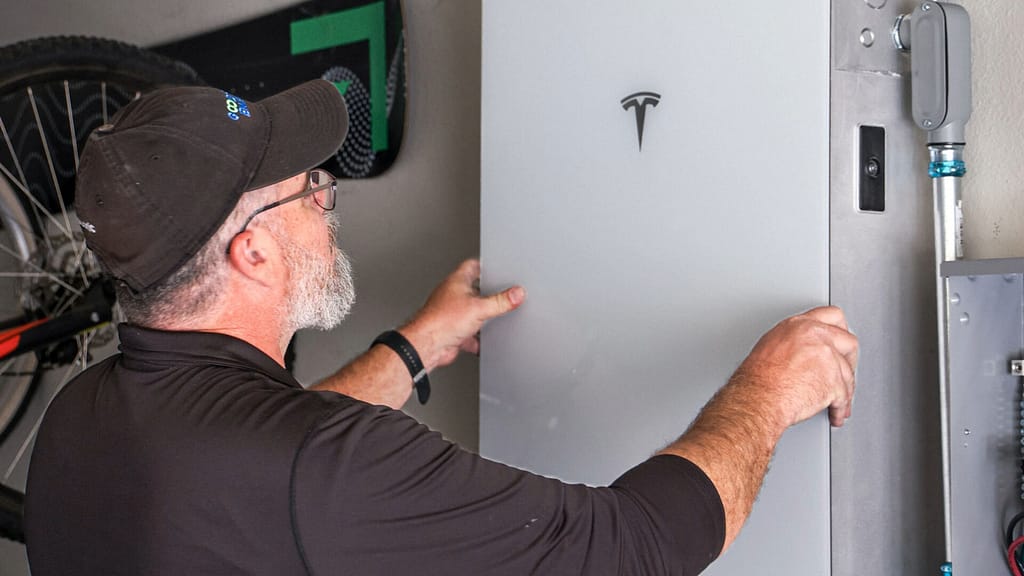
When considering the investment in solar energy, a common concern is, “Do solar panels work in bad weather?” Can solar panels still generate electricity during cloudy days, rain, snow or even hurricanes like Hurricane Beryl?
The answer is yes, though the efficiency varies. Solar panels are designed to harness sunlight. While direct sunlight is optimal, they still produce energy in indirect light. Additionally, if solar panels are paired with a battery, a backup of energy will be ready for use during storms.
Table of Contents
The Impact of Hurricane Beryl
In early July of 2024, Hurricane Beryl wreaked havoc, leaving a trail of destruction and more than 3 million homes and businesses without power. Natural disasters like hurricanes, with their fierce winds and heavy rains, often cause widespread power outages, highlighting the fragility of traditional power grids. This incident underscores the importance of having a reliable power source that can withstand such events.
Solar Panels and Bad Weather: A Resilient Duo
Solar panels are remarkably durable. They are built to endure harsh conditions, including high winds and hail. During cloudy or rainy days, the energy production decreases but doesn’t stop entirely. Advanced solar technology has improved the efficiency of these panels in low-light conditions, ensuring that your home still receives some power. Snow can initially block sunlight, but most panels are designed with smooth surfaces that allow snow to slide off easily, and any residual snow can be quickly melted by the heat generated from the panels.

Pairing Solar Systems with Battery Backups
To further enhance the reliability of solar energy during severe weather, pairing solar systems with battery backups is a game-changer. Battery storage systems, such as the Tesla Powerwall, store excess energy produced on sunny days. During a storm, when solar production might be low or the grid is down, these batteries provide a steady power supply, ensuring that your home remains powered. This not only keeps your essential appliances running but also maintains your safety and comfort during emergencies.

Texas: A Prime State for Solar Panels and Batteries
Texas stands out as an ideal state for investing in solar energy and battery storage. It’s not just the abundant sunshine that makes Texas a great candidate; the state also offers numerous local incentives and a 30% federal tax credit for solar installations. These financial benefits significantly reduce the initial cost of setting up a solar system, making it more accessible for homeowners and businesses.
Moreover, Texas ranks number one in the U.S. for the variety and frequency of natural disasters. From hurricanes and floods to tornadoes and severe storms, Texans face a high risk of power outages. Solar panels paired with battery backups provide a resilient solution, offering a dependable power source even when the grid fails.
Advantages of Solar Energy in Texas
- Local Incentives: Texas offers various programs and rebates that make solar installations more affordable. These incentives, combined with federal tax credits, can cover a substantial portion of the installation costs.
- Energy Independence: With a solar system and battery backup, homeowners can achieve a significant degree of energy independence. This means less reliance on the grid and more control over energy costs.
- Environmental Impact: Solar energy is a clean and renewable source. By switching to solar, Texans can reduce their carbon footprint and contribute to a greener planet.
- Increased Property Value: Homes equipped with solar panels often see an increase in property value. Prospective buyers are attracted to the idea of reduced utility bills and a reliable energy source.
Conclusion: Solar Panels, a Wise Investment
In conclusion, the answer to “Do solar panels work in bad weather?” is a resounding yes. Solar panels are a reliable energy source, even in bad weather. The combination of solar systems with battery backups provides a robust solution to power outages, ensuring that homes and businesses remain operational during storms. The recent devastation caused by Hurricane Beryl is a stark reminder of the vulnerability of traditional power grids. By investing in solar energy, particularly in states like Texas that are prone to natural disasters, homeowners can enhance their resilience, achieve energy independence, and contribute to environmental sustainability.
As the technology continues to advance and costs decrease, solar energy becomes an increasingly attractive option. Whether you’re motivated by financial savings, environmental concerns, or the need for reliable power, solar panels paired with battery backups offer a comprehensive solution that meets these needs effectively.